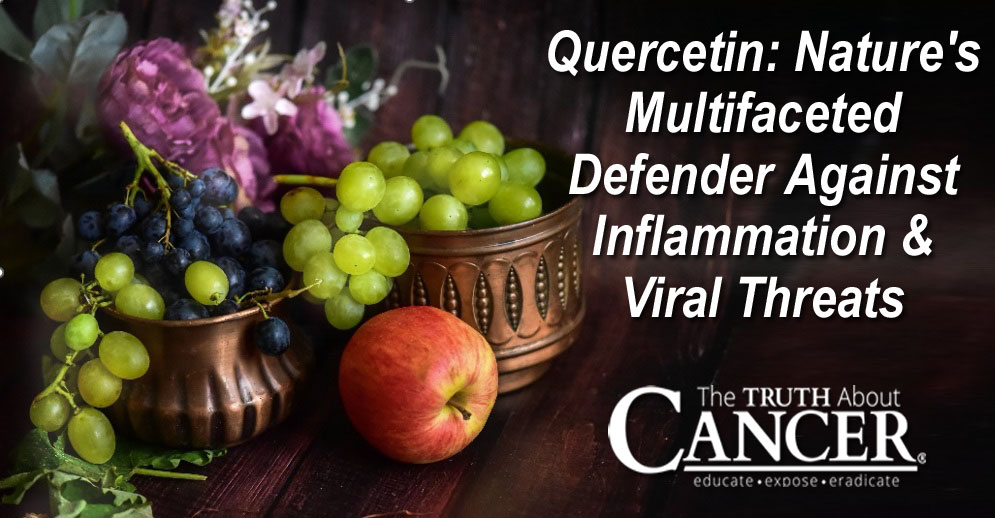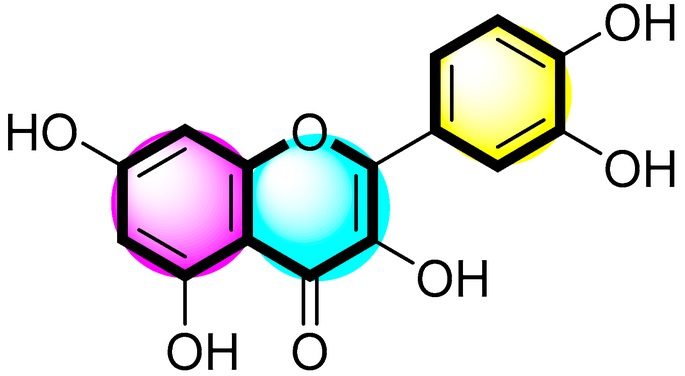Quercetin is a flavonoid (a type of plant pigment found in many fruits) and a potent antioxidant abundant in various fruits and vegetables, particularly apples, red grapes, and berries, offers many health benefits. Its anti-inflammatory and anti-allergic effects are well-documented, contributing to its utility in managing inflammatory conditions and allergic responses.
Quercetin exhibits antiviral activity against viruses such as SARS-CoV-2, making it a potential therapeutic agent in combating viral infections. Several studies have determined that quercetin can bind with strong affinity and low free energy to SARS-CoV-2 proteins involved in viral entry and replication, suggesting it could block the virus’s infection of human cells.
Quercetin also demonstrates anti-diabetic effects, assisting in regulating blood sugar levels, and has antihypertensive properties, contributing to managing high blood pressure. In addition to these benefits, Quercetin shows promise in addressing various cardiovascular conditions, including atherosclerosis, endothelial cell dysfunction, and heart failure. Its ability to mitigate cytokine storms, an excessive immune response associated with severe infections, further underscores its potential in managing critical illnesses.
In a 2011 study, researchers explored the potential protective properties of quercetin against DNA damage and oxidative stress caused by methylmercury in animal subjects. For 45 days, animal models were orally administered methylmercury and doses of the flavonoid mirroring human exposure levels. The researchers then assessed DNA damage in liver cells, known as hepatocytes, and peripheral leukocytes (white blood cells).
The findings indicated that methylmercury led to a 17% reduction in glutathione levels in the body and induced DNA damage in both liver and blood cells. However, when quercetin was introduced, these detrimental effects were not observed. This benefit is particularly noteworthy as dietary compounds play a crucial role in preventing DNA damage, a key component of cancer prevention.
Moreover, its antioxidant properties help neutralize harmful free radicals, thereby protecting cells from oxidative damage and combating cancer. Studies on animal models demonstrate quercetin’s preventive effects against liver cancer, particularly hepatocellular carcinoma. Given the alarming rise in liver cancer cases globally, quercetin’s role in combating this malignancy is noteworthy.
Quercetin also demonstrates the ability to suppress the metastatic potential of lung cancer cells, particularly non-small cell lung cancer. This finding opens avenues for therapeutic interventions to combat metastasis in lung cancer patients.
Overall, quercetin’s multifaceted pharmacological profile positions it as a valuable natural compound with diverse therapeutic applications, ranging from inflammation and allergies to viral infections, cancer prevention, and cardiovascular health.




















Where do you get Quercetin
Ty thank you for all the work you are doing. In your opinion what is the best prevention for cancer since more than ever every time you turn around soomeone new has been diagnosed with cancer. Waiting to hear from you.
thx
Lucy
I have watched a good majority of your videos and I don’t think I have seen anything on skin cancer. What are they recommending for skin cancer?
Could you email me back with any resources regarding skin cancer?
Thank you for all that you do!!!
yes , Biodihydroquercetin/taxifolin is one of the most powerful antioxidants from larch wood extract in powder form.